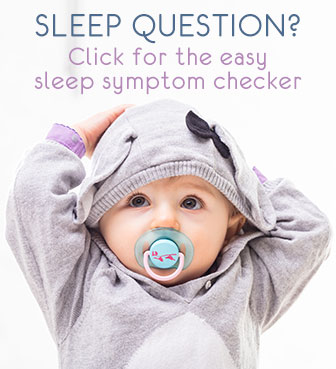Children Bedwetting: Causes and Solutions
Author Name: Heidi Holvoet, PhD
Until age 6-8, children bedwetting is no cause for alarm as it mostly resolves itself. Understanding causes, solutions and knowing when to seek medical advice helps you guide your child towards dry nights.
Yes,
it's still normal for a 6-8 year old to wet the bed.
No,
medical
treatment is usually not necessary.
Gentle guidance that avoids
shame and guilt is crucial, and most effective
Bed wetting, also called nocturnal enuresis, is a
sleep
disorder
classified as a
parasomnia
.
It
disturbs your child's
sleep
as he/she often wakes but doctors are almost sure
it is not related to how he/she sleeps (even if we often think it's
because they sleep too deeply).
Girls
are usually dry by the age of six, and most
boys
by the age of
seven. About 10% of all children still wet the bed at 7 years old, 5%
at 10 years old.
[1]
So keep in mind: on any primary school bus there will always be several
kids who are not dry all night.
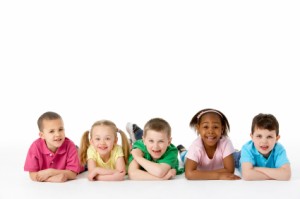
As a parent guiding your boy or girl, your single main task is to
avoid that he
or she feels ashamed or guilty about it
.
It's is a
condition that he/she cannot help: it's a physical development that
just has to happen, and happens
later for some than for others. It can become psychological though by
stigmatizing, and that's what you want to avoid.
So: be casual about it,
act
casual even if you worry, don't make it into an issue and don't let it dampen the family's spirits. The less you make a fuss out of it, the faster it'll resolve.
Children bedwetting solutions
Because the exact cause is not always clear, there is not a
single solution that guarantees results. But there are
effective ways to guide and treat
including
behavioral guidance, medication and
surgical treatments.
With any solution, it's most important not to make the kid feel
ashamed and guilty. It's usually not a behavioral (
ill will
) or psychological problem but
it can become one if the child is made to feel bad about it.
Children bedwetting causes
Scientists use the term primary bedwetting if there have not been dry nights before. This is the most common case. Secondary bedwetting is when a boy or girl starts wetting the bed after having been dry for 6 months or more.
Primary bedwetting causes
Most researchers agree that an important cause of primary bedwetting
is a delay in
producing the
vasopressin
hormone in the
kidneys. This hormone regulates urine production at night. Children
bedwetting usually haven't fully developed this hormone-producing
process. But they do develop it one day.
This shows so nicely how most bed
wetting
is not a behavioral thing, and how it simply resolves
itself, in due time.
There are also other possible causes, one which may be genetic. That means
a boy or girl whose parent(s) was dry at night relatively late, has
a larger chance to have the same.
1% of children bedwetting, has an underlying medical cause (such as
an infection or a structural issue). It is also one of the
signs of sleep apnea
; in combination with other symptoms like snoring
and breathing difficulties, bedwetting can point towards
apnea in children
.
Secondary bedwetting causes
Sometimes, a child will suddenly wet the bed again after having been
dry for a good while.
This has the typical example of starting to wet
the bed again at the birth of a younger sibling, or when starting
school: emotional stress
is then a common cause. But in some cases, an
infection or a structural physical problem can be responsible.
When to seek medical advice?
When should you go and see a doctor?
Of course, the rule of thumb answer is:
when
you worry
. But bear in mind that there is usually no
reason to worry, and definitely not too early on.
The general advice is to take a bedwetting girl or boy of
6
years or more
to the doctor. He will check whether there
is a
medical/structural cause and may suggest a treatment to follow.
If no physical cause is found, you are good to simply do the gentle
guidance and take a relaxed attitude towards it, you will be surprised
how effective that can be.
If you're unsure what to do about your child's bedwetting, you're most
welcome to
ask
me here
so we can discuss.
Article Author: Heidi Holvoet, PhD - Founder, senior sleep consultant

Heidi Holvoet, PhD, is the founder of the Baby Sleep Advice website and movement, an award-winning author, baby & toddler sleep consultant with 17+ years experience as well as a certified lactation counselor.
Over the years, Heidi has received several awards inluding a Mom's Choice Award (MCA) and National Parenting Awards (NAPPA) for her Baby Sleep Advice website, programs and books. Also, Baby Sleep Advice was awarded "Most Trusted Infant's Sleep Solutions Company 2023" in the Benelux Enterprise Awards 2023.
Heidi continually conducts personal research and participates in continued education and in that way stays up to date with current scientific and pyschosocial infant care.
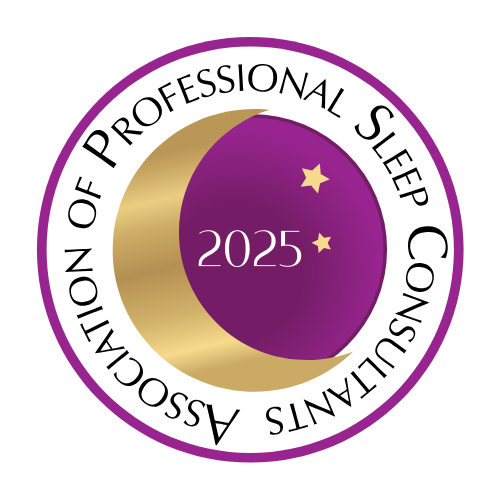
She is also a member of the Association of Professional Sleep Consultants of which she was one of the earliest contributors. She obtained her PhD degree in physics at the University of Ghent in Belgium.
Heidi is passionate about helping babies and their parents sleep more and better, with her trademark holistic and truly-no-tears approach that has been proven and praised time and again by parents worldwide to be effective and truly no-tears. Respect for you as a parent and your baby, is at the heart of Heidi's warm and kind support. Her approach always keeps in mind a baby's needs and abilities at any given age, is based on pediatric science and the most up to date knowledge in infant care and sleep science.
As well as the award-winning baby sleep programs, Heidi offers popular 1:1 consults and easy-access 30-minute SOS Sleep sessions.
Back to the
Sleep disorder overview
Resources
[1] Nocturnal Enuresis on Wikipedia (opens in new window) https://en.wikipedia.org/wiki/Nocturnal_enuresis .

Baby waking every hour?
by Heidi Holvoet, PhD
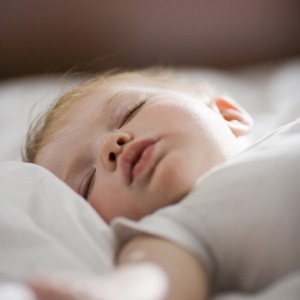
Sleep schedules by age
by Heidi Holvoet, PhD
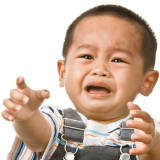
Separation Anxiety
by Heidi Holvoet, PhD
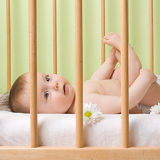
Crib safety guidelines
by Heidi Holvoet, PhD

Why does my baby wake up every hour?
by Heidi Holvoet, PhD

